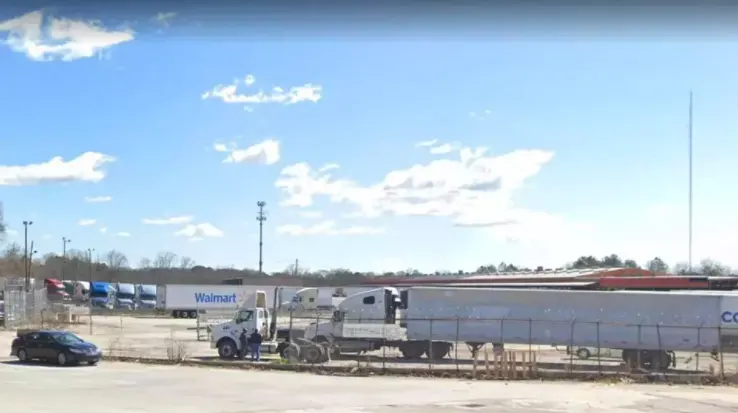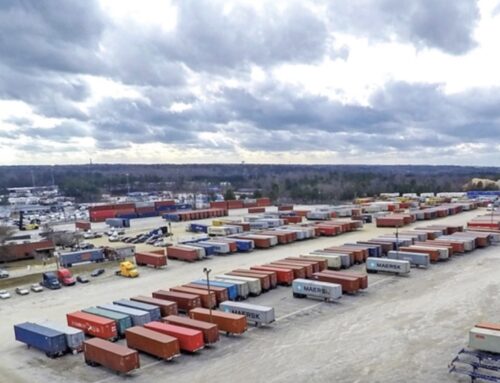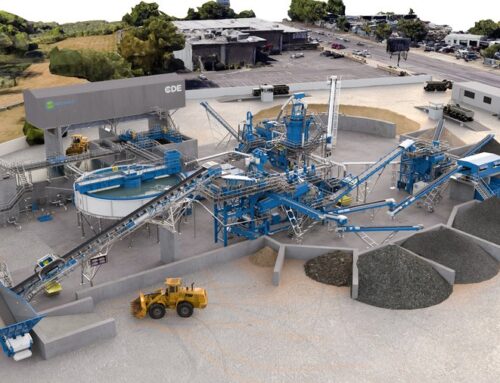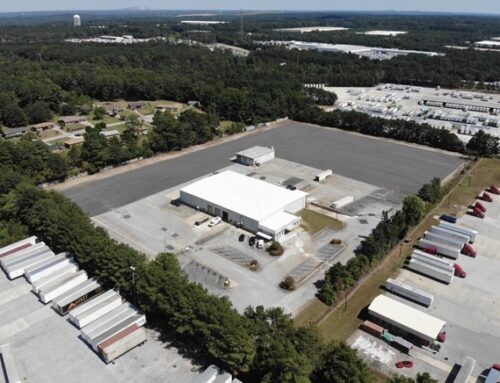Because it is so different from other asset classes, industrial outdoor storage requires a unique base of knowledge and experience to distinguish the good deals from the bad. If the volume of investors entering the market is about to rise as high as panelists at Bisnow’s Industrial Outdoor Storage Update webinar on Dec. 9 predict, expertise will be a key differentiating factor.
For decades, IOS has been the exclusive province of either owner-occupiers or local and regional owners. Any investor looking to build a national portfolio will face the same challenges as legacy owners, only at a larger scale and greater complexity.
“The aggregation of a portfolio and the unique challenges to due diligence and management are really not to be taken lightly,” Realterm Vice President of Investment Derek Fish said on the webinar. Realterm has owned and managed IOS properties for more than 30 years.
Realterm and Alterra Property Group (https://www.bisnow.com/tags/alterra-property-group), which entered the sector about four years ago and now has a joint venture with JPMorgan (https://www.bisnow.com/tags/jpmorgan) to purchase IOS properties, both have whole teams dedicated to sourcing and vetting acquisitions, Fish and Alterra principal and Chief Investment Officer Matt Pfeiffer said.
Brookfield Properties (https://www.bisnow.com/tags/brookfield-properties) started investing in IOS in the middle of last year and doesn’t have a dedicated team yet, but the private equity giant overcomes that disadvantage by having a bigger appetite for risk, Brookfield (https://www.bisnow.com/tags/brookfield) U.S. Head of Real Estate Management Devin Barnwell said. One of the most common risks in the space is in the quality of tenant, given that users tend to stick around long term. Adding value to a recently acquired property with an occupant already in place may not be viable.
“The majority of [tenants in] your portfolio will be regional or local companies that won’t be able to commit to longer leases, won’t be able to share in the capital required for improvements and will be very sensitive to rent increases,” Fish said. “The most common user of IOS is often a low-margin business, so a big increase in rent to market rate could destabilize the tenant.”
“There is a responsibility on ownership to make sure that tenants are performing their duties,” Barnwell said. “If they defer maintenance, you may wind up having to spend capital [to fix properties] down the line.”
If an owner has the legal leeway to not renew a low-margin tenant in the hope that it can land an ecommerce (https://www.bisnow.com/tags/e-commerce) merchant — as with distribution centers, Amazon (https://www.bisnow.com/tags/amazon) is by far the biggest source of demand — then a knowledge of the local zoning particulars is a necessity.
Still, the combined forces of rising e-commerce demand and no real pathway toward an infusion of additional supply ultimately will prove that industrial outdoor storage’s risks aren’t enough to scare anyone off, panelists agreed.
“The costs [of owning IOS property] are insurance and real estate tax, which is very low compared to the carrying costs in other sectors,” Pfeiffer said. “If you’re in a good market or a good location, you should not be afraid to take a vacancy risk. And the tenant improvements are not costly enough to provide meaningful friction in leasing.”
Source Article by Bisnow





